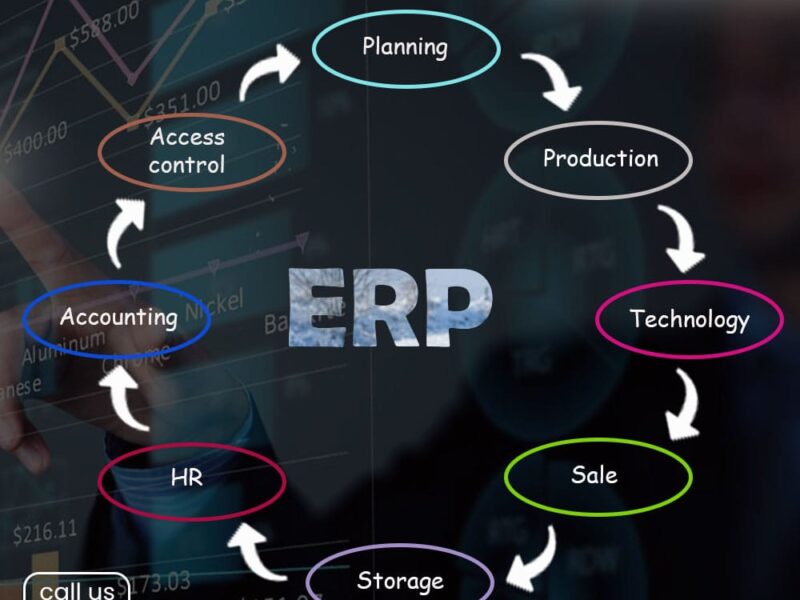ERP systems improve enterprise efficiency and effectiveness by integrating financial data. Without an integrated system, individual departments, like finance, sales, and so on, need to believe separate systems, each of which may likely have different revenue and expense numbers. Staff within the least levels end up dalliance reconciling numbers rather than discussing the thanks to improving the enterprise.
Integrating orders: An ERP system coordinates order taking, manufacturing, inventory, accounting, and distribution. This is much simpler and fewer error-prone with one system than with a series of separate systems for every step within the process.
Providing insights from customer information: Most ERPs include customer relationship management CRM tools to trace all customer interactions. Coupling these interactions with information about orders, deliveries, returns, service requests, etc., provides insight into customer behavior and wishes.
Standardizing and accelerating manufacturing: Manufacturing companies, especially those with an appetite for mergers and acquisitions, often find that multiple business units make similar widgets using different methods and computer systems. ERP systems can standardize and automate order taking and supporting processes. This standardization saves time, increases productivity, and reduces the count.
Standardizing HR information: Many enterprises, especially those with multiple business units, lack a channel to communicate with employees about benefits or to trace employees’ hours and expenses. An ERP system, with a self-service portal, enables customers to require care of their own personal information, while facilitating time reporting, expense tracking, vacation requests, scheduling, training, etc. By consolidating information, like advanced degrees, certifications, and work experiences, into an HR repository, individuals with much-needed capabilities are often more readily matched to potential assignments.
Standardizing procurement: Without an integrated procurement system, analyzing and tracking purchases across the enterprise is very challenging and difficult. Large enterprises often find that different business units purchase the same product but don’t receive the advantage of volume discounts. ERP procurement tools arm purchasing teams for vendor negotiations by identifying rarely used vendors, products, and services.
Facilitating government reporting: ERP systems can greatly enhance an organization’s ability to file the specified reporting for state regulations, across finance, HR, and supply chain.
ERP improves business performance in several ways.
Internal efficiency: Properly operating ERP software enables enterprises to scale back the time required to finish virtually every business process.
Better decision-making: ERPs boost collaboration through shared data organized around common data definitions. Shared data eliminates time wasted arguing about data quality and it permits departments to spend their time analyzing information, drawing conclusions, and making better decisions. The better effective decision-making balances central guidance with some amount of local autonomy. Central command and control are never aware of local needs while full-field autonomy precludes enterprise-wide coordination. Shared data and customary business processes allow decisions to be made within headquarters’ parameters by the individuals closest to things.
Increased agility: Standardization and simplification result in smaller rigid structures. This creates a more agile enterprise that will adapt quickly while increasing the potential for collaboration.
Enhanced security: While a centralized database with enterprise data may be a big target, it’s easier to secure than data that are scattered across many servers in closets or under desks. It is particularly difficult, if the safety team isn’t conscious of the server or that it contains corporate data.
WHAT WE DO
Benefits of ERP are Higher Productivity, Better Insights, Accelerated Reporting, Lower Risk, Common Database and Improved Agility, Streamlined Business Processes and Operations, Improved Financial Consolidation, Cost Reduction, Supply Chain Optimization, Quick Response to Market Conditions with Data Analysis, traceability, Improved Customer Satisfaction, Services and Relations, Increased Competitiveness with Industry Built System and Adapts to Growing Business
Our Customized, cost-effective ERP Solutions consider all your specific requirements and ensure minimal changes in business practices by integrating multiple domains to give enhanced synergy and an overall reduction in costs by optimizing and automating many back-office data related to technology, services, and human resources.



